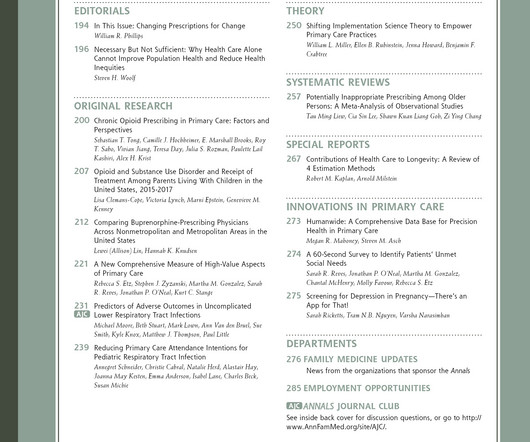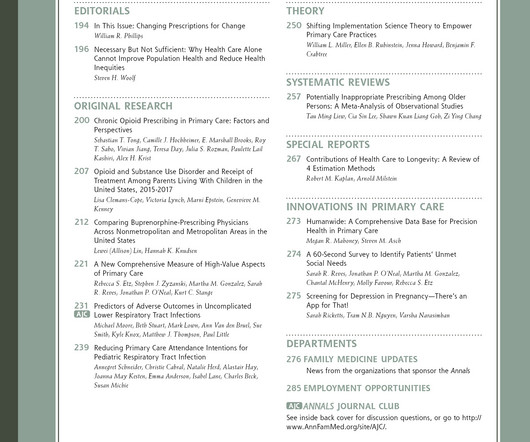Ambulatory Behavioral Health Referral Patterns in the Setting of Chronic Medical Conditions [Behavioral, psychosocial, and mental illness]
Annals of Family Medicine
NOVEMBER 20, 2024
Context: Patients with chronic medical conditions (CCs) and behavioral comorbidities have lower quality of life and increased healthcare expenses. Population Studies: NA Intervention/Instrument: NA Outcome Measures: NA Results: 45% (n = 3,889) of patients referred to ambulatory BH care had 1 or more chronic conditions.

















Let's personalize your content